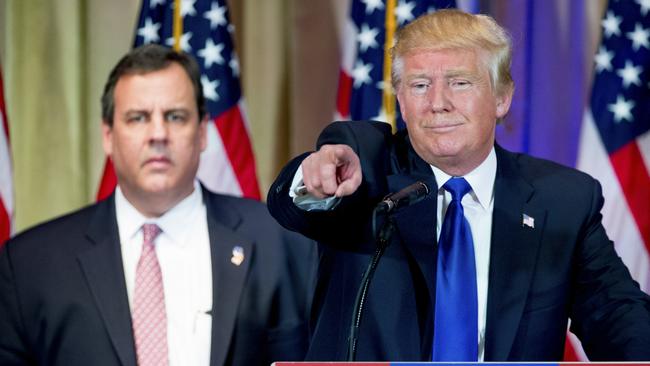Could there be an Australian Donald Trump?

Don’t be shocked by the fact that Donald Trump is now the front runner for the Republican nomination for President of the United States of America.
Instead, understand the forces that have led to his rise and be aware that those same forces are building up here in Australia. In a few years, those forces could well cause either of our major political parties to take a radical turn away from the conventional approach to government.
The business community needs to understand that many of the basic assumptions now being embraced, such as globalisation, free-trade agreements, migration and bad behaviour on sharemarkets (start with shorting and legal insider trading), are now being challenged.
The main force driving support for Trump is that the US middle class is being hollowed out and salaries are not rising. Even worse many are losing their jobs and are being forced to take a salary cut to earn an income. And if the middle class is struggling, it makes it even tougher for low-income people.
At the same time, the whole population is watching appalling behaviour on Wall Street and believes that technology, globalisation and free-trade agreements are pushing the profit share of the US economy higher and higher. If you let that happen in a democracy, then expect a voter backlash. In the US it was simply a question of when and whether the backlash would come from the right or the left.
I have always believed that unless the current US hollowing out of the middle class was addressed, the voter backlash would radically change the presidency in either 2020 or 2024 and could usher in an era of US isolationism.
That still might be right, but we are watching Donald Trump brilliantly handle these issues blaming free trade and migration for destroying the American dream. Trump promises to make America great again.
Remember we are talking politics not whether Trump is right or wrong, so saying Trump is wrong or can’t achieve his goals is irrelevant. This is a sales pitch.
Just as importantly, Trump has isolated another force that may be just as powerful around the world — ordinary people both in the US, Australia and many other places are sick and tired of the political correctness that has infiltrated so many of government bodies and the media. When incomes and jobs were booming it was tolerated. Trump is probably the most ‘politically incorrect’ political aspirant the world has seen since Ronald Reagan.
He has therefore become a folk hero among a lot of people. That does not mean he will win. The Democrats’ Hillary Clinton is a conventional candidate and she is hot favourite to secure the presidency. However, she is already being drawn to the Trump line on issues like the abuses on Wall Street.
Fascinatingly, the Democrats number two candidate, like Trump, has pitched his campaign to appeal to those in the American middle and lower income levels who are being hit.
But whereas Trump’s remedies come from the right, Bernie Sanders remedies come from the hard left.
In the UK, the Labour Party is being led by the hard left, while in Germany the opposition against migration is coming from the hard right. These events are a perfectly predictable response to what is happening in those communities.
In Australia, both our major parties pursue conventional policies and are united on the refugee issue, although there are internal differences within both parties.
But if by 2019 there is still an Australian income recession and the free-trade agreements have not delivered benefits to the middle- and lower-income levels, then the party that loses the 2016 election might well embrace radical polices, either to the left or right. And the Greens have an eye to the gap.
The problem for the US, Australia and all developed countries is that technology is going to replace vast swathes of middle class jobs. Much of Australia’s posterity has come from migration but if we see the current income recession drag on, then Trump- or Sanders-type policies will become popular.
The Business Council is trying to get the government to lower company tax — an incredibly dangerous political move given the income recession and the fact that Australian corporate tax rates after franking credits are not way out of line. What would have been far more sensible for the Business Council in the current environment would have been to advocate allowing companies to start new ventures that are taxed at a lower rate but not to have the benefits of franking credits for the profits of those ventures.
And we are seeing private health premiums rise, which hits the middle class, because governments are simply lazy or incompetent and will not tackle the duplication and waste in the system.
The rise of Trump is an alert to everyone.


